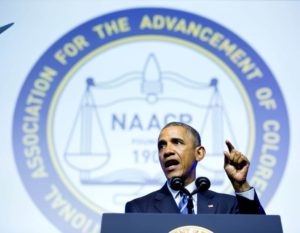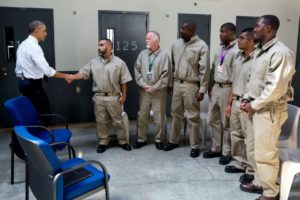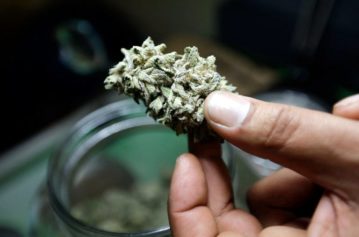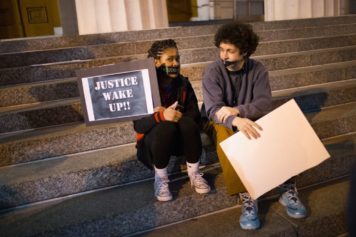
President Barack Obama delivers remarks at the NAACP Convention in Philadelphia, Pa., July 14, 2015.
(Official White House Photo by Pete Souza)
Two people who were granted clemency by President Barack Obama have returned to prison, highlighting the larger issue of recidivism, the role of clemency as only a partial solution and the needs of the formerly incarcerated.
Carol Denise Richardson of Texas City, Texas, was released from federal prison last year after receiving a life sentence in 2006 for possessing 50 grams or more of crack cocaine, as The Washington Post reported. The judge cited Richardson’s criminal history in meting out the sentence. Although Richardson had claimed she was using the drugs for her own addiction, prosecutors argued she had intended to sell and distribute the cocaine. With criminal justice reformers concluding that the drug laws unfairly treated those found in possession of crack cocaine when compared to powder cocaine, Obama granted clemency to 1,715 nonviolent drug offenders such as Richardson, an historic number of reprieves, though thousands more remain in prison as casualties of a drug war that claims as its victims primarily Black people and the poor.
The 49-year-old grandmother, who was released this past July after serving a decade behind bars, was arrested for theft in the Houston suburb of Pasadena in April. On Thursday, a federal judge ordered Richardson back to prison for violating the conditions of her supervised release, according to The Dallas Morning News. She will serve an additional 14 months, followed by five years of supervised release.
In a statement, acting U.S. attorney Abe Martinez said Richardson violated four other terms of her release, including failing to report to her probation officer, failing to report any “law enforcement contact” to her probation officer within 72 hours, failing to report she was fired from her job and changed her residence.
“This defendant was literally given a second chance to become a productive member of society and has wasted it,” said Assistant U.S. Attorney Ted Imperato in a news release. “She has clearly shown a willful disregard for the law and must face the consequences for her crimes and actions.”

President Obama greets inmates during a visit to El Reno Federal Correctional Institution in El Reno (Source: Obama White House Archives)
The CAN-DO Foundation, a nonprofit advocacy group for nonviolent offenders, took up the cause of Richardson and helped secure her clemency. The group, which placed her as No. 8 on their “Top 25 Women” seeking clemency, issued a statement that places the problems of the criminal justice system in perspective.
“To be clear, Carol suffers from addiction. It was the reason she was indicted, convicted and received a life sentence. It is also the reason why she has been sent back to prison,” the statement read. “Carol has not harmed anyone other than herself. Putting drug users in prison is not appropriate for a civilized society or a suitable allocation of tax dollars.”
According to the organization, Richardson suffered from bipolar depression. It is likely she no longer had access to her medication and no one assisted her with her medical issues after release. Richardson also had completed a 40-hour “Non-Residential Drug Abuse Program” eight months before she received clemency, an introductory class that does little to fight addiction. “Carol needed access to the 500-hour residential drug program, which she never benefited from,” the CAN-DO Foundation said, noting the Bureau of Prisons does not offer the program on the grounds that lifers will not return to society. The group calls for a change to the policy on the grounds that everyone needs access to rehab, particularly those who have fallen prey to “zero tolerance” drug policies and have been sent to prison for decades or for life due to nonviolent crimes and drug addiction.
The needs of ex-offenders are not being addressed and Carol Richardson’s situation is a case in point. According to the CAN-DO Foundation, prisoners who have served 10 years or more behind bars suffer from post-traumatic stress disorder, particularly those who are returned to society and are expected to “bounce back” as if they had been gone for a few months. “Having been out of society for long periods makes it extremely difficult to find employment, housing or transportation required to hold a job. Although billions of dollars are being allocated to re-entry issues, we have yet to see a case where those funds are actually trickling down to the people coming out of prison when it comes to helping them purchase even basic necessities, such as a smartphone, computer, clothing, food, etc.” the organization said, pointing to the need for compassion and empathy, and the need to overhaul a drug policy that regards addiction as a criminal rather than medical issue.
Like Richardson, Robert Martinez Gill was freed from a drug-related life sentence by President Obama in 2015, and is now back in prison. Gill was arrested in 1990 and sentenced to life for cocaine and heroin distribution conspiracy, as the San Antonio Express-News reported. Gill found himself back in jail in February for allegedly crashing his car into another vehicle and undercover police cars while fleeing from a drug deal. He was charged with possession with intent to distribute 500 grams or more of cocaine and faces five to 40 years in prison.
According to the Bureau of Justice Statistics, there are high rates of recidivism among released prisoners in the U.S. One study of 404,638 prisoners released in 30 states found that within three years of release, 67.8 percent were re-arrested. Within five years, 76.6 percent were re-arrested. Of those prisoners who were re-arrested, 56.7 percent were arrested by the end of the first year. The most likely to be arrested were property offenders (82.1 percent), followed by drug offenders (76.9 percent), public order offenders (73.6 percent) and violent offenders (71.3 percent).
While the bipartisan effort to reform drug laws and reverse mass incarceration gained steam during the Obama years, such efforts have lost momentum and are now in doubt. This, as the Trump administration calls for law and order and a return to the war on drugs and a marijuana crackdown in Black communities, as society seeks compassion in the white-dominated opioid crisis.


